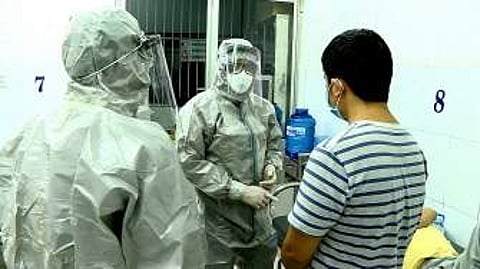

Over 25 people have died from the coronavirus in China following an outbreak in the central city of Wuhan, which is now under complete lockdown. Almost 830 cases have been reported in Wuhan, one case was also reported in the United States. There are growing concerns about the spread of the virus around the world as hundreds of millions of people travel for the Lunar New Year celebrations, which start on Friday.
What is Coronavirus?
According to the World Health Organisation (WHO), Coronaviruses (CoV) are a "large family of viruses that cause illness ranging from the common cold to more severe diseases such as Middle East Respiratory Syndrome (MERS-CoV) and Severe Acute Respiratory Syndrome (SARS-CoV). A novel coronavirus (nCoV) is a new strain that has not been previously identified in humans."
WHO has also stated coronaviruses are zoonotic, meaning they are transmitted between animals and people. Detailed investigations have found that SARS-CoV was transmitted from civet cats to humans and MERS-CoV from dromedary camels to humans. Several known coronaviruses are circulating in animals that have not yet infected humans.
A novel coronavirus, identified by Chinese authorities on January 7 and currently named 2019-nCoV, is a new strain that had not been previously identified in humans. Little has been found about it, although human-to-human transmission has been confirmed.
When and where did the outbreak start?
The outbreak is believed to have originated in December in a seafood and meat market in the Chinese city of Wuhan. After spreading throughout China and other countries in Asia, it recently arrived in the United States. The US case involved a Washington statesman in his 30s who had recently traveled to Wuhan.
What are the symptoms?
According to the WHO, signs of infection include respiratory symptoms, fever, cough, shortness of breath and breathing difficulties. In more severe cases, it can lead to pneumonia, severe acute respiratory syndrome, kidney failure and even death. Reports say the incubation period of the coronavirus remains unknown, but other sources say it could be between 10 to 14 days.
